Julia Hart scored a sensational word-of-mouth hit with her previous feature, Stargirl, and now she’s back and ready to blow the doors off of Hollywood with I’m Your Woman. The Amazon original film (available December 4) stars one of the streaming giant’s biggest stars, Rachel Brosnahan (The Marvelous Mrs. Maisel), and shines a whole new light on the incredibly gifted actress. Writer-director Julia Hart has crafted a part in Jean that takes the crime milieu, turns it on its head, and adds layers of innate suspense that will leave you breathless.
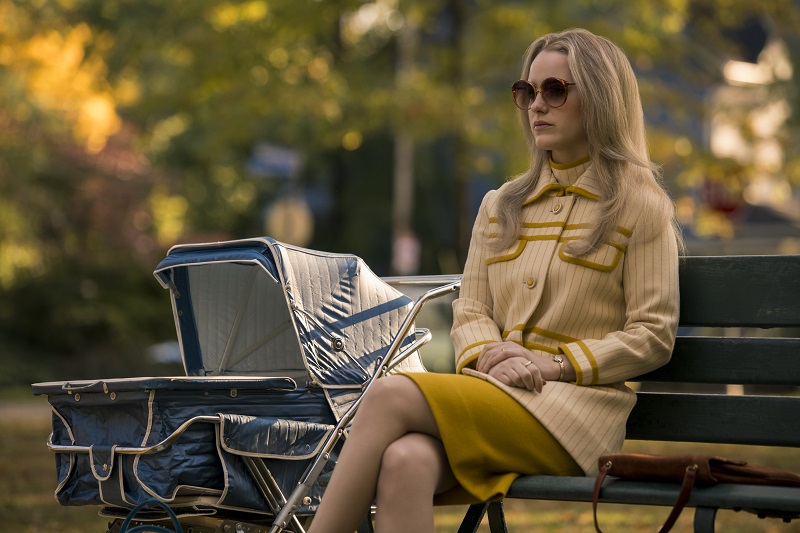
Hart phoned The Movie Mensch for an exclusive chat about I’m Your Woman to discuss the inner workings of the most unique of cinematic experiences. Jean is married to Eddie, who is in the crime business—exactly how it is never quite detailed. But that is the point. This is a 70s set crime drama from an entirely fresh perspective—that of the significant other and family waiting at home.
On one fateful day, Cal (Arinzé Kene) storms into Jean’s home and tells her to grab what she can, her baby and it’s time to get out the door and hide. What is so fascinating is how this tale is told. It is firmly laid in Hart’s mesmerizing manner of keeping the violence and horrors at a distance, but their threats are ever-palpable through the performance of Brosnahan and those who share her experience of running from the earthbound version of Creeping Death—aka the mob.
The auteur and The Movie Mensch shared the most fascinating of conversations where we delve into what makes Brosnahan so special, the enjoyable challenge of showcasing a different side of the crime drama that amps up the emotive power, and what it was that got her into the tough business of storytelling on its highest scale.
The Movie Mensch: First of all, congratulations. This is one of those movies where I found myself yelling at the screen. So, you’ve done that, which I think is a feat. When you get people talking to people that aren’t real, you got them.
Julia Heart: Awesome.
The Movie Mensch: The film hangs on the shoulders of Rachel. If we don’t identify with her, the whole thing’s off. But we do and we do from moment one. As a filmmaker, what do you find most special about Rachel?
Julia Heart: One is that I think she’s capable of being so many different things and that’s what an actor is supposed to be, but not all of them are. A real actor can play any role and I think that she has that ability. I mean, you look at the different characters she’s played, Rachel on House of Cards or Midge Maisel and now Jean, she doesn’t even look like the same person.
The Movie Mensch: No.
Julia Heart: Then also when you know Rachel in real life, that’s a whole other person. She’s not like any of the characters she plays at all. So that in and of itself to me is very remarkable. Then something else that was so important in particular to this character is her ability to communicate so much, seemingly without even moving her face. She doesn’t even need dialogue to express the most complex of emotions. That was something that we had a lot of fun with because there is so much silence in the film. So much goes non-verbally communicated, and she just has such a gift for that. Her face is infinite in that regard.
The Movie Mensch: I could produce countless examples of what you’re saying, but I mean, her running into that phone booth haunts me, just her eyes.
Julia Heart: Yeah. See…
The Movie Mensch: She’s also a producer on the film. What was she like as a creative collaborator?
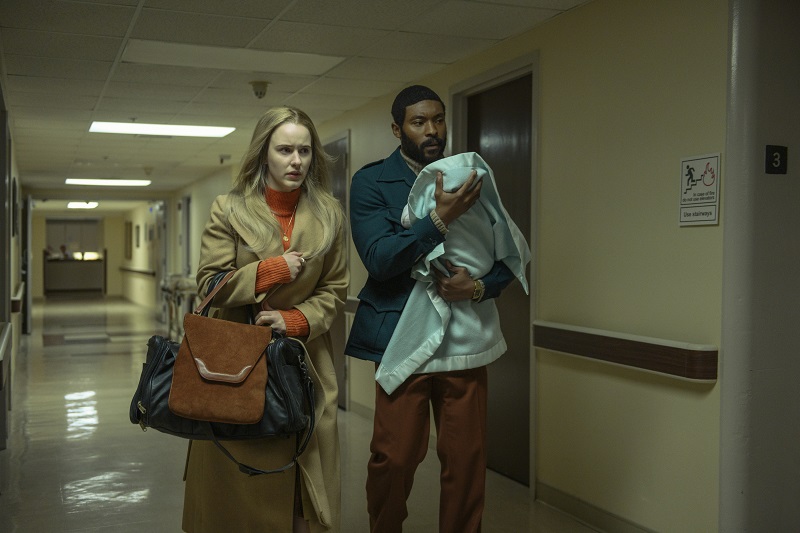
Julia Heart: Amazing. I had never worked with a producer who was also an actor in one of my films. So anytime you’re doing something new, there are unknowns and anxiety about that. She was just incredible. She was an amazing producing partner to Jordan (Horowitz), my husband who [also] produced the film, and to me as the director. [She] always had the whole film’s interest in mind when she would talk about decisions we were making and giving her input. Then there’d be moments on set where she’s holding a baby in her arms and has fake blood running down her face is having a conversation with Jordan about the next day’s schedule. Then she could turn around and get right back into the take. So, it turns out she is also a very talented producer. She’s a true original and a very unique artist.
The Movie Mensch: Was it fun to go back to the ’70s and what were you looking for in a production design aesthetic that Ms. (Gae S.) Buckley scored so brilliantly?
Julia Heart: She really did. I’m so happy to hear you say that. She is such a talented human being, and also one of my best friends. So, I always love it when people compliment her. This is our third film together. It was so fun to dive into the ’70s. They’re my favorite movies. We were paying homage to a lot of those movies, but a lot of those movies, because they were directed by men and about men, are often kind of the darker, grittier environments. It was really fun to play with the softer domestic and female elements of that era that I feel like we didn’t get to see as much of on-screen. We were always thinking about how we could highlight the femaleness of spaces in that decade. And it’s funny, Gae had had a long career in this industry. She’s done so many different types of films. She’s done Westerns, she’s done musicals, she’s done contemporary, she’s done period. With me even she’s done three very different environments, but I’m not going to lie. There was something very special about this. She was an adult in the ’70s, and so she was really drawing from a lot of her own personal experience when she was creating those sets. I think you can feel that real lived experience in her work in the film.
The Movie Mensch: Wow. Yeah. I mean, I was young in the ’70s, but there were a couple of locations where I was like, I think I lived there [both laugh]. So much of what is happening to our protagonists are out there. I love films that force storytellers to be creative with the worlds they create. Was that aspect challenging? We don’t see Eddie’s work, but it is very much alluded to.
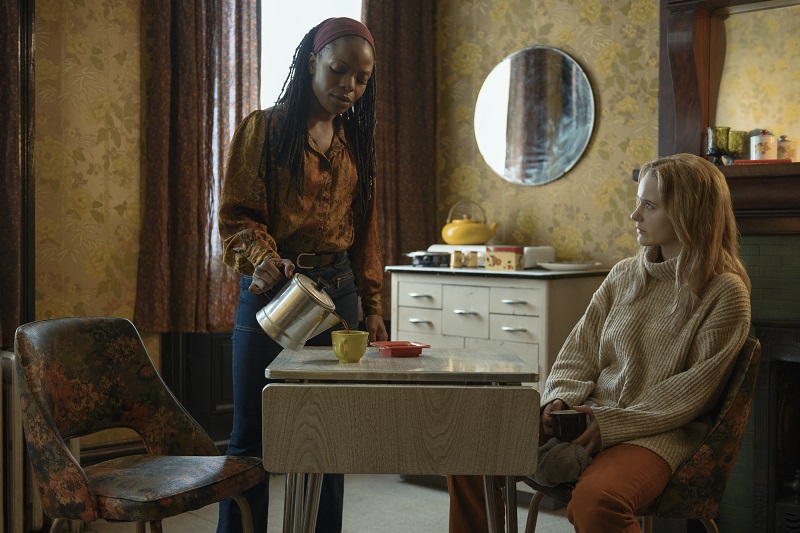
Julia Heart: It was really fun. It was a really fun challenge. That challenge started at the script level with Jordan, as I said, producer, husband, writing partner. All in-house operation! He and I had a lot of fun talking about the movie that ran parallel to this movie because in a lot of ways, I’m Your Woman is the movie that’s running parallel to movies like Thief and Godfather and Straight Time and Friends of Eddie Coyle. It’s the story of the woman who is only in a few scenes of those movies, now she’s the central character. So we, at the very beginning of the development stage wrote out a separate outline about Eddie’s timeline and what was happening with Eddie when Cal intercepted that timeline and Teri (Marsha Stephanie Blake) intercepted that timeline, and just made sure that we as the storytellers had a solid understanding of what that story was so that we could find ways to interestingly weave that into Jean’s narrative.
The Movie Mensch: Wow. And it was amazing. And I’m glad you brought up Cal and Teri’s character. They proved to be wildcards here. What were you looking for in actors who portrayed them and what did Marsha and Arinzé bring that you knew they were that couple?
Julia Heart: Yeah, they’re really are something. The two of them. I feel lucky that I got to work with them. Marcia Stephanie Blake, I have Rachel Brosnahan to thank. I guess that was in some ways her first producerial task. In the very first call I had with Rachel about the script when she was like, “I would like to play Jean. And I would like to produce this movie.” She asked me who I was thinking of for Teri. And I said, “Well, I have a few people in mind.” She was like, “Marcia Stephanie Blake has to play Teri.” And I was like, “Oh, okay.” She was right. They had worked together before. They had done Othello together on Broadway. They’re very good friends as well, but already had a great experience working together. I think that really shines in the movie. Their chemistry is… there’s a lot of history to it.
The Movie Mensch: They also had to be extremely different women of the 70s.
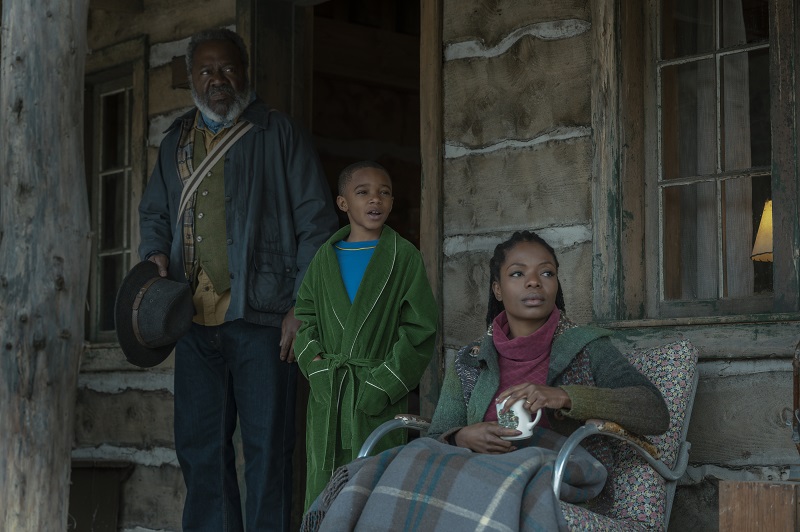
Julia Heart: Yes, I wanted Teri to be so different from Jean, but also able to connect with her and Marcia Stephanie, as an actor, just has the ability to play such different notes. She can play very strong and very assured. But she can also play very vulnerable and very gentle. I felt like Teri as a mom, but also a woman who has been through this all before really needed to have both of those sides to her. And then Arinzé, and the character of Cal, a lot of that is true as well. He really tries to keep it together at first for Jean because he doesn’t want to let her in. He doesn’t want to tell her the truth. So, he is presented at the beginning as very cold and very guarded but ultimately is obviously a very loving, very gentle man. He has a very overdeveloped maternal side to him. He is so good with the baby. He is so good with Paul. So again, that duality was so important. I think that duality is such a big part of the people surrounding the criminals.
The Movie Mensch: What first interested you in the art of storytelling? Was it a movie, a book, a TV show, what turned on that light?
Julia Heart: My dad is a screenwriter and I just grew up in a house where art could be a job. That was an option, which is such a privilege. Also, just movies were everything. We would go to the video store every Friday night we’d each get to pick out a movie and then we would just watch movies all weekend. So, movies were just this thing that was both what put clothes on my back and food in my mouth, but also this is communal activity that we all shared in together and all emotionally invested in together as a family. [This] is what Jordan and I do now with our kids. It just always felt so magical to me, so attainable, so real because it was my dad’s job, but also how on earth do people actually do this for a living and make movies and tell these stories? It’s funny. It’s not one movie. It’s almost like it’s every movie. How could you not watch all of these amazing movies and somehow want to be a part of that world?
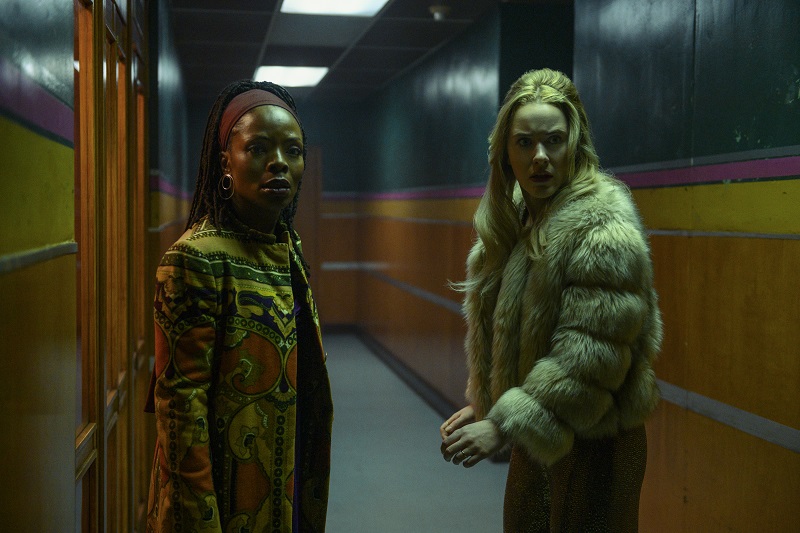
The Movie Mensch: That’s amazing. I mean, I write about movies and my daughter has grown up and now she’s seven and most kids get a little bit of TV before bed, perhaps. Mine, she wants to watch one trailer and go to bed, every night.
Julia Heart: Oh my God, that’s so cute.
The Movie Mensch: Is that amazing? I’m like, “What?”
Julia Heart: I love it. My oldest is six. We’ve been doing movie nights with him now that he can stay up a little later. We do them on Saturday nights and last week was Back to the Future and he just loved it, which made our week.
The Movie Mensch: Real quick in the time we have, I’d like to talk about that scene in the nightclub. We stay mostly with Jean throughout, but it is just chaos. How was that for you to film?
Julia Heart: It was so intense. We had 300 background actors, stunt performers, amazing stunt coordinator, Alan D’Antoni. My DP, Bryce Fortner, also operates. So, you have your lead actor/producer, your DP/operator, in the midst of all of that chaos. They all just did such an incredible job pulling it off because again we wanted to have the big shootout like all of those crime movies do—but we really wanted you to be in that intimate, emotional terror that Jean is experiencing. So just staying with her throughout all of that chaos and having something that’s simultaneously was very big but could also feel very internalized and with her was definitely a challenge to execute.
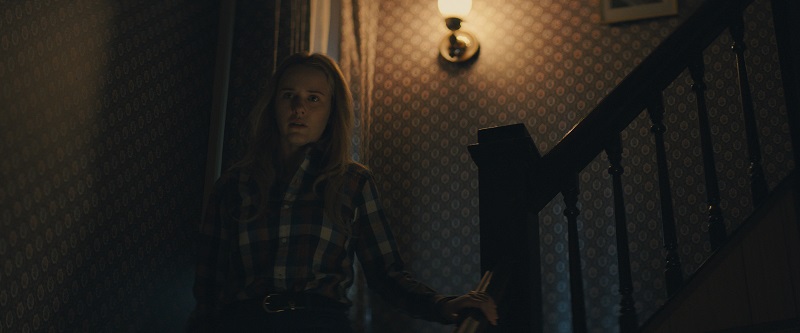
The Movie Mensch: Wow. Well, the whole thing just blew me away, Julia. I really appreciate your chat. This was a delight and thanks for all the great information and all the best to you in the future. And I hope we talk again.
Julia Heart: It was a delight for me too, Joel, seriously. This was such a lovely conversation and I hope you and your daughter enjoy watching movies together as time goes by.

